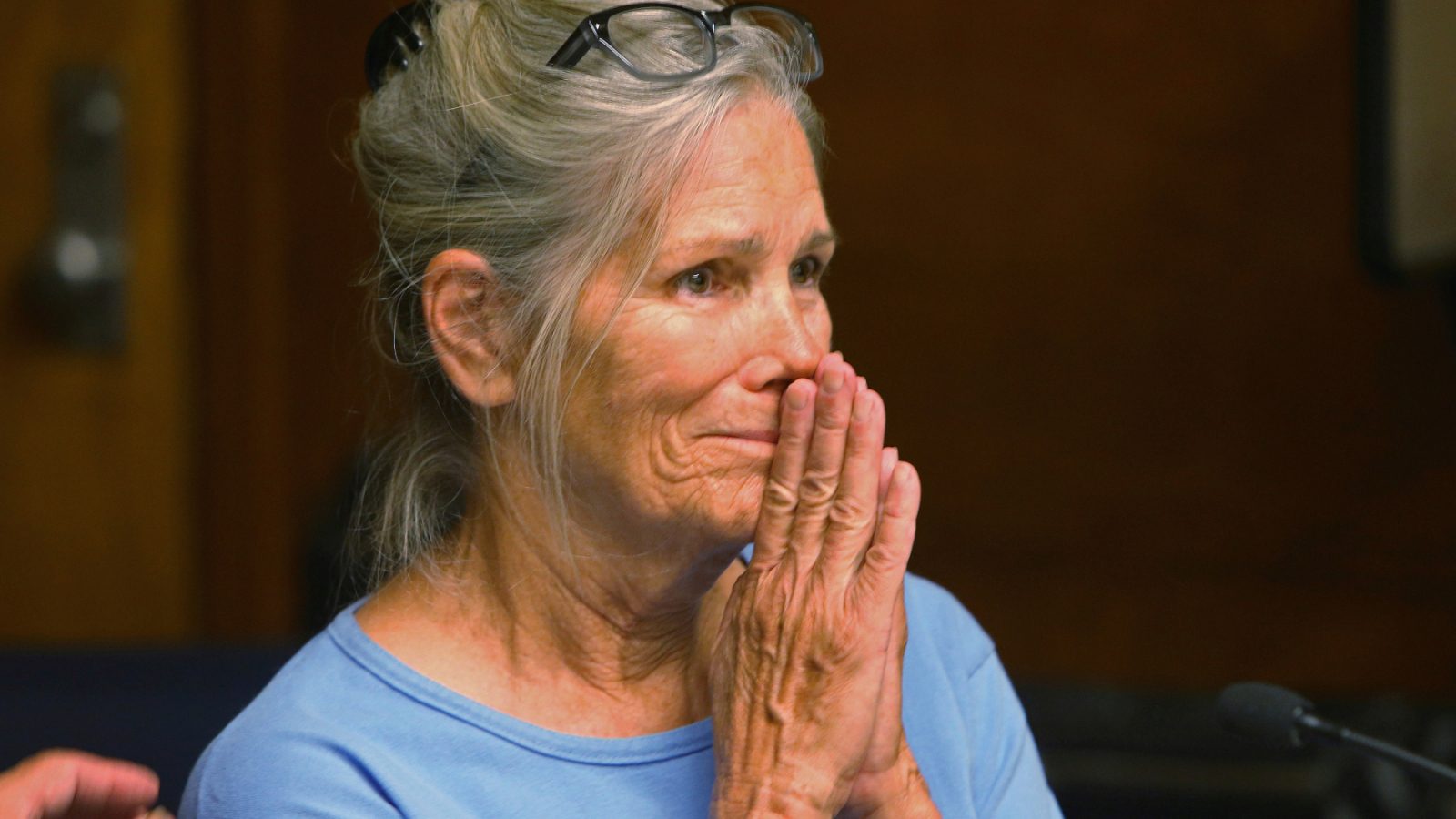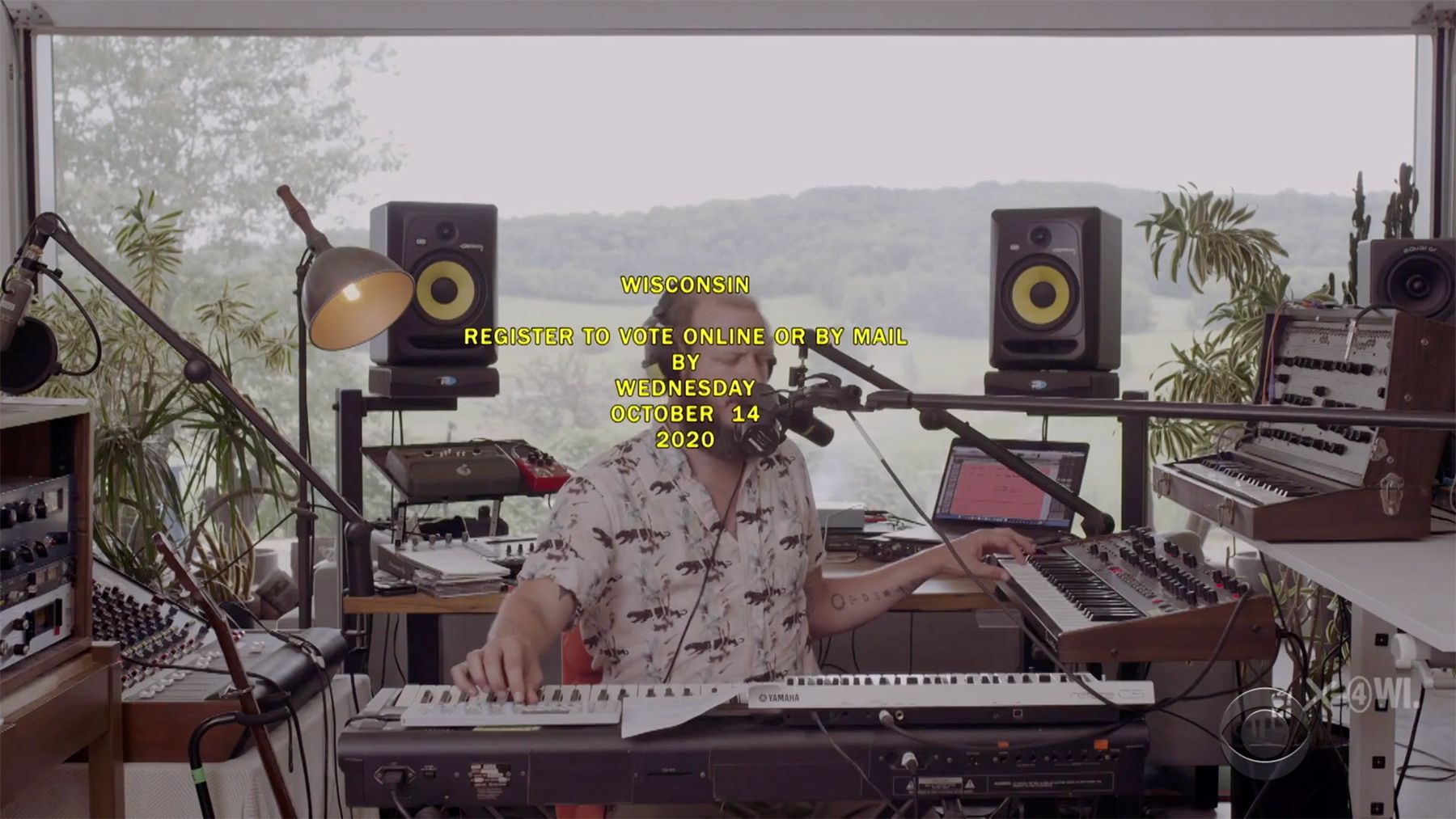
California Gov. Won’t Appeal Parole for Manson Family Member Leslie Van Houten
California Gov. Gavin Newsom — who blocked efforts for Leslie Van Houten to be paroled five times previously — announced Friday, July 7, that he won’t contest a California appellate court’s decision to allow for her parole. Newsom had until Monday, July 10, to file a challenge with the Supreme Court.
“The Governor is disappointed by the Court of Appeal’s decision to release Ms. Van Houten but will not pursue further action as efforts to further appeal are unlikely to succeed,” Erin Mellon, spokesperson for the governor’s office, said in a statement via NBC News.
“The California Supreme Court accepts appeals in very few cases, and generally does not select cases based on this type of fact-specific determination,” the governor’s office said.
Van Houten could be freed in around two weeks after the parole board reviews her record and completes the paperwork for her release from the California Institution for Women in Corona, her attorney Nancy Tetreault told the Associated Press.
The governor’s decision to not contest Van Houten’s parole came after a California appeals court paved the way for the release of former Manson family member, Van Houten, in May. A panel of three judges voted two-to-one to reinstate a Board of Parole decision that found Van Houten suitable for parole, vacating Gov. Gavin Newsom’s decision to overturn it.
The 72-year-old Van Houten, who was convicted for her role in the infamous slaying of Los Angeles couple Leno and Rosemary LaBianca, has been recommended for parole five times, most recently in Nov. 2021. But those decisions have been overturned by California’s governor each time.
The new appeals court ruling stems from Newsom’s reversal of a 2020 decision to grant Van Houten parole. At the time, the governor said “evidence shows that [Van Houten] currently poses an unreasonable danger to society if released from prison.”
But in their ruling, the two judges who voted to vacate Newsom’s decision, said “there is no evidence to support the Governor’s conclusions.” They continued: “Van Houten provided extensive explanation as to the causative factors leading to her involvement with Manson and commission of the murders, and the record does not support a conclusion that there are hidden factors for which Van Houten has failed to account. The Governor’s refusal to accept Van Houten’s explanation amounts to unsupported intuition.”
Rich Pfeiffer, one of Van Houten’s lawyers, praised the decision, telling Rolling Stone, “I expected this and it’s about time.” He added, that Van Houten could be out of prison “as early as this week” back in May.
Van Houten has been serving a life sentence for her role in the LaBianca murders, which took place in Aug. 1969 when she was 19 (she did not partake in the murders at Sharon Tate’s home). During her trial, Van Houten testified that she and fellow Manson family member Patricia Krenwinkel held a pillowcase over Rosemary LaBianca’s head, gagged her with a lamp cord, and stabbed her between 14 and 16 times.
Van Houten was sentenced to death in 1971, but that ruling was overturned after California briefly abolished the death penalty. Two more trials followed, culminating with a sentence of life in prison. But the court did say Van Houten would be eligible for parole starting in 1977.
Over the decades, Van Houten applied for parole more than 20 times, with the parole board first recommending her for release in 2016. While the decisions by Newsom and his predecessor, Jerry Brown, to overturn those parole board rulings were generally upheld on appeal, this time Van Houten’s efforts finally succeeded.
When Newsom vacated the parole board’s 2020 decision, he said that Van Houten’s “explanation of what allowed her to be vulnerable” to Manson’s influenced remained “unsatisfying.” He cited a statement of hers at the time, where she described herself as a “very weak person that took advantage of someone that wanted to take control of my life, and I handed it over.”
The appeals court, however, ruled that Newsom’s decision “fails to account for the decades of therapy, self-help programming, and reflection Van Houten has undergone in the past 50 years. The historical factors identified in the criminal risk assessment are the sort of immutable circumstances our Supreme Court has held cannot support a finding of current dangerousness when there is extensive evidence of rehabilitation and other strong indicators of parole suitability, all of which Van Houten has demonstrated.”
This article was updated at 1:30 p.m. on July 8 to reflect California Gov. Gavin Newsom’s decision to not challenge the appellate court’s decision for Leslie Van Houten’s parole.



